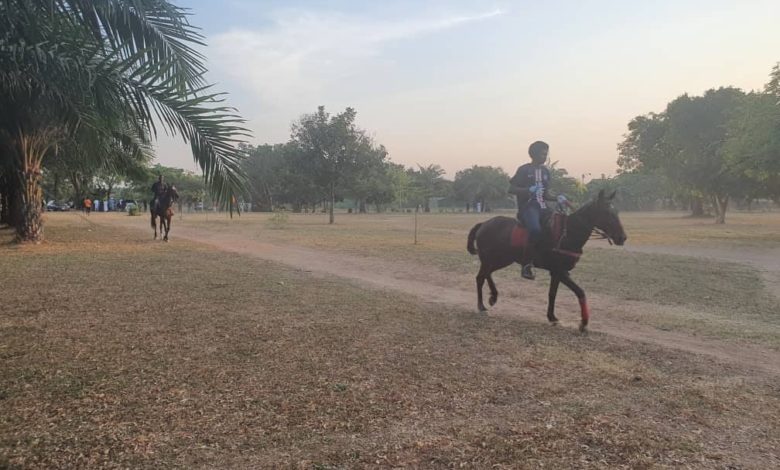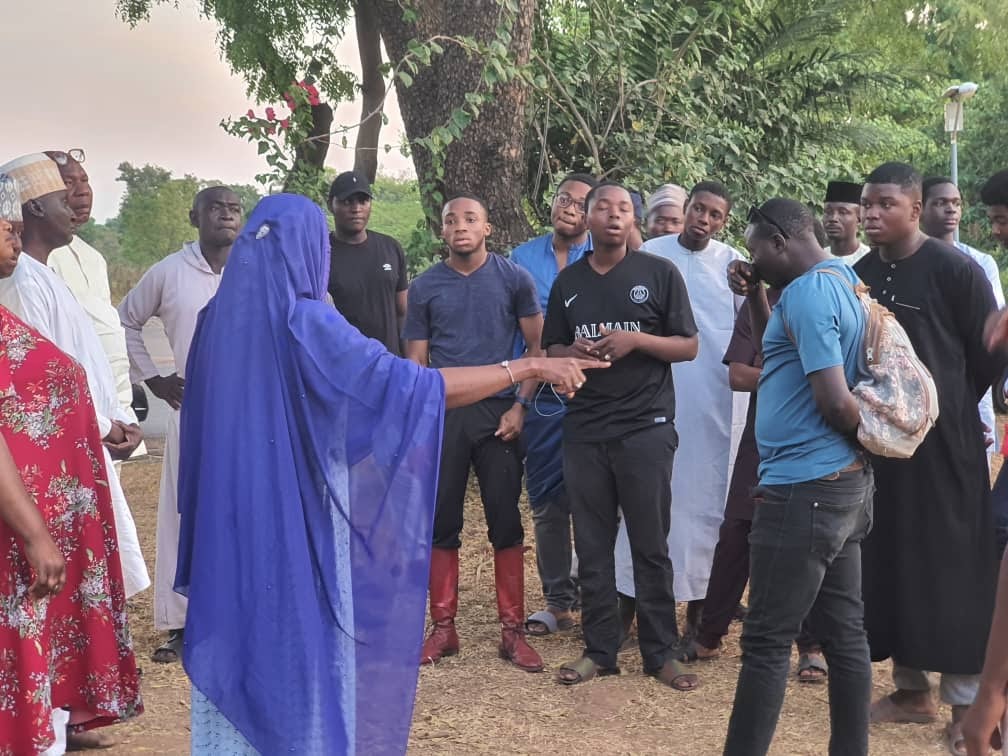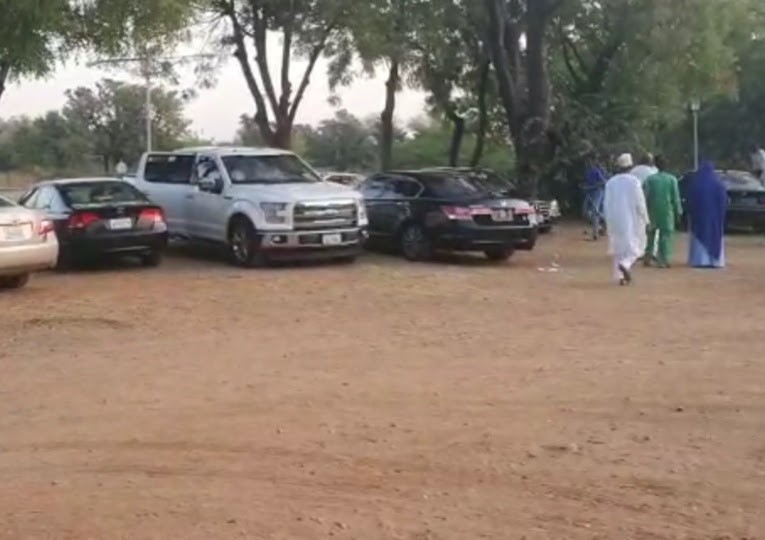Abuja Park Threatened By Activities Of Horse Riding Youths, Motorists

The Abuja Central Park and Botanic Garden is a national asset in the Federal Capital Territory with great potentials for recreation in a green environment. Findings, however, show that the park’s natural facilities are being threatened by the activities of young horse riders and motorists.
The park is located at the foot of the famous Aso Rock near the National Arboretum and Presidential Villa in Asokoro District.
Inaugurated by then President Olusegun Obasanjo in 2001, it provides inhabitants of the city with a serene environment to enjoy the freshness that nature offers as well as an opportunity to see wildlife and domestic animals.
The park and zoo also has a lake beneath the mountain and is divided into two sections: where the animals are kept and playgrounds for visitors.
On November 27, HumAngle noticed that a group of youths in about 30 luxury cars and horses stormed the grounds of the park co-hosting the Parks and Recreation Department, which manages the operation of parks and green areas.
Their goal was to use the lawn surrounded by trees to have fun and play games with their horses, without consideration for the lawns and importance of the peaceful environment for both humans and animals.
The turfgrass is an important component of urban lawns and landscapes due to its ability to prevent erosion by wind and water, reduce noise pollution, and create a cooling effect during warm weather.
It also improves air quality and flood control, aids the breakdown of organic chemicals, and enhances the environment’s visual appeal.
The activities of the group quickly attracted the attention of the Parks and Recreation Department, whose officials spoke to the youths to prevent the lawn’s destruction.

While some of the intruders left shortly afterwards, others were reluctant and slow to disperse.
HumAngle later found out the most senior staff member among the response team was the director of Parks and Recreation, Riskatu Abdulazeez.
Abdulaziz was concerned about the frequent, unauthorised use of the park by some residents of the FCT. Addressing the crowd, one of the officials of the agency described the park as a public place where people could visit and freely enjoy the serene environment. He emphasised the need for every visitor to use the space responsibly in order to preserve the environment.
Though the department’s swift action prevented encroachment on the lawn on Friday, unless more is done to protect the park, there are likely going to be additional cases of Abuja residents using the green space recklessly.
The FCT Administration (FCTA) had in January lamented how illegal activities had overtaken many parks in the city, which were originally planned to make up about 33 per cent of the federal capital.
The FCTA, through the Department of Parks and Recreation further announced that it was embarking on a rehabilitation exercise that involved sensitising residents about the significance of the parks.
“Only activities within the green belt would be focused on for the purpose of protecting the city from environmental problems and for recreational purposes,” said the former director of FCT Parks and Recreation Department, Ali Ukele.
Support Our Journalism
There are millions of ordinary people affected by conflict in Africa whose stories are missing in the mainstream media. HumAngle is determined to tell those challenging and under-reported stories, hoping that the people impacted by these conflicts will find the safety and security they deserve.
To ensure that we continue to provide public service coverage, we have a small favour to ask you. We want you to be part of our journalistic endeavour by contributing a token to us.
Your donation will further promote a robust, free, and independent media.
Donate HereStay Closer To The Stories That Matter





